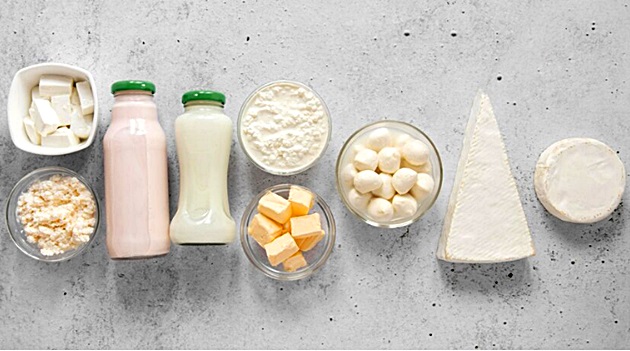1520

Consumer demand for a healthy lifestyle continues to drive the specialized nutrition market, with dairy companies like Danone strengthening their presence in this space, as reported by DairyReporter.
Consumers Know What They Want
Specialized nutrition encompasses research-backed nutritional solutions tailored to consumer groups with specific dietary needs. This includes everything from early nutrition to sports and active living, to healthy aging.
According to Nielsen IQ, in 2024, consumers are more informed than ever about what they want, need, and what is good for them. They are also more likely to spend on products that combine multiple health benefits.
Over the years, dairy companies have commercially benefited by repurposing whey, a by-product of cheese production, into a nutritionally rich dairy ingredient that has become a staple in sports nutrition and functional innovation in foods and beverages.
This is not merely a trivial accomplishment, especially at a time when sports nutrition has become the fastest-growing consumer health category globally, according to Euromonitor International, driven by both lifestyle consumers and those interested in active nutrition.
Dairy Companies Innovating Beyond Whey
Nestlé, Lactalis, and Danone—three of the largest dairy companies by revenue—all lead specialized nutrition divisions dedicated to researching and developing product solutions covering everything from early nutrition to clinical care.
Elsewhere, New Zealand's Fonterra owns two B2B ingredient brands: NZMP, providing dairy-based ingredients for everything from food manufacturing to specialized nutrition, and Nutiani, the cooperative's B2B health and wellness brand supplying cutting-edge ingredients such as lactoferrin.
In Europe, Dutch cooperative FrieslandCampina and Denmark's Arla Foods both operate B2B ingredient divisions, while in Asia, Mengniu recently launched its own sports nutrition brand M-Action featuring a range of liquid protein supplements.
Danone's Focus on Medical Nutrition: A Case Study
Specialized nutrition represents 30% of Danone's total revenue, with a +10% growth in 2022. The French dairy giant leads in medical nutrition in Europe and ranks second globally in early-life nutrition.
Danone has a long-standing presence in medical nutrition. Recent company investments in the medical nutrition space underscore how crucial this segment is to Danone as it aims to drive growth under the Renew Danone strategy.
In September 2023, the company announced plans to invest 50 million euros (approximately 54 million dollars) to expand a factory in Opole, Poland, to enhance the group's medical nutrition capabilities—specifically adding a production line for adult medical nutrition to serve tube-fed patients.
In October 2023, the company stated it would invest 450 million Turkish lira (approximately 13 million euros / 14 million dollars) in its production facilities in Lüleburgaz, producing both dairy products and medical nutrition products.
Danone targets the adult medical nutrition market as a space poised for future growth driven by an aging population and increased prevalence of chronic diseases.
A similar announcement followed in May 2024 when Danone announced it would inject 70 million euros (76 million dollars) into a medical nutrition production line at its Steenvoorde headquarters in northern France. The majority of the investment, around 60 million euros, is slated to produce nearly 30 recipes of Danone's oral nutritional supplements for patients within the specialized nutrition range, Nutricia. (The remainder will go towards installing a biomass boiler.)
The Steenvoorde factory will produce nearly 20 million liters of medical nutrition products per year, said Danone, including solutions to improve the quality of life for patients suffering from disease-related malnutrition.
Also in May, Danone announced the completion of its acquisition of Functional Formularies, a whole food enteral feeding business in the US, in a move to expand the French dairy giant's enteral feeding ranges.
Areas of Interest
A spokesperson for the dairy major noted an increasing prevalence of chronic diseases like cancer and an aging global population, suggesting a growing need for medical nutrition products that could contribute to better patient outcomes.
"At the same time, we know there are current patients who could benefit from medical nutrition but don't have access to it; only 1 in 3 patients who need them actually receive medical nutrition," explained the spokesperson.
"This current gap and future needs underscore the need for investment and innovation in this sector. Danone is committed to accelerating our offering of adult medical nutrition products both by consolidating our industrial capacity and investing in research and innovation to improve outcomes for millions of patients globally."
Danone is researching and innovating in multiple product types, including oral nutritional supplements, thickening products for patients with swallowing difficulties, and specialized feeds and medical devices for patients unable to consume food orally.
"Medical nutrition has been shown to help reduce medical complications, support recovery and independence, and can reduce the use of medical resources," the company told us. "For example, in cancer cases, medical nutrition has demonstrated benefits in fewer postoperative complications, improved treatment tolerance, shorter hospital stays, and better quality of life for the patient."
Regarding Danone's statement that only some patients needing medical nutrition have access to it, there are several reasons. "This may be due to low awareness of the role of nutrition and the risks of malnutrition in healthcare and due to healthcare systems under pressure due to the increasing prevalence of diseases and increased patient needs," the spokesperson said.
"That's why it's important for us to invest in the medical nutrition category and be able to serve as many patients as possible. We believe that everyone who needs medical nutrition should have access to it, so we will continue to innovate with products that meet patient needs and raise awareness of the benefits of medical nutrition to support patient outcomes."
Why Dairy Companies Are Drawn to Specialized Nutrition?
Dairy companies have access to some of the most profitable (e.g., lactoferrin) and popular (whey, casein) nutritional ingredients on the market—and opportunities in specialized nutrition attract them.
According to Euromonitor International, today's consumers seek nutritional products that can offer multiple physical and health benefits, from weight loss and digestive health to immunity and sleep. Creating that "magic pill"—ideally in a more appealing format—is a key challenge for formulators.
Sports nutrition has also continued to be growth-oriented in 2024, driven by demand from both lifestyle and active consumers.
In early nutrition, developing formula recipes that closely mimic breast milk will continue to drive innovation, as will the pressure from newer generations trying to align their brand choices with their values.
And the global consumer desire to improve their health and well-being is likely to propel the industry forward in the coming years.
According to McKinsey & Co's Future of Wellness survey, which polled 7,500 consumers globally in 2020, 79% of respondents said they consider well-being important, with 42% making well-being their top priority. The global management consultancy added that consumers on each market have significantly increased their prioritization of well-being "from 27% to 65%" over the last 2-3 years. (Photo: Freepik)





